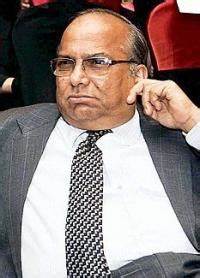Judges Must Be ‘Active, Overactive’ During COVID-19, Says Former SC Judge
Webinar On Democracy, Economic Justice and Judicial Activism Post Pandemic

Bhubaneswar: Former Supreme Court judge Ananga Kumar Patnaik is of the opinion that judges must be “active, overactive” to ensure economic justice and protect democratic rights during the COVID-19 pandemic amid the lockdown restrictions which have affected people’s livelihood.
“The restrictions have posed new areas where judicial activism has to be done. Courts will be within their powers to test the reasonableness of such restrictions,” Justice Patnaik said while speaking at a weekend webinar organized by Odisha Dialogues (Odisha Alochana Chakra), a Bhubaneswar-based thought leadership forum.
Patnaik said courts usually restrict themselves to interpreting the law but COVID-19 was an “emergency” that allowed the executive to wield sweeping powers. “Judiciary (has to be) more active to protect democratic and economic rights during the COVID period. Judges must be active, overactive to see if they can give relief to persons on economic and democratic justice,” he argued.
Patnaik went on to say that judicial activism is not explicitly spelt out in the Constitution, but can be best defined as opposition to judicial restraint. “When judiciary starts looking beyond interpreting the law, it is judicial activism.”
The theme of the webinar was ‘Democracy, Economic Justice and Judicial Activism: Imperatives for a Post-Covid World’.
“Judiciary has to see whether the clampdowns or lockdowns are so severe that they deprive a person of the right to occupation, trade or business. The court has to say ‘is the restriction reasonable?’ It will be within the power of the judiciary to test the reasonableness of a restriction imposed by the state,” said Patnaik, who was a Supreme Court judge from 2009 to 2014.
Former professor of Delhi School of Economics Dr Pulin B Nayak cited Mahatma Gandhi to argue that real economic justice lay in the welfare of the ‘daridra narayan’ — the poorest of the poor. On the other hand, democracy is the best insurance against man-made disasters that tend to hurt the economically vulnerable more than others, said Dr Nayak, who also chairs the advisory board of Forum for Odisha Dialogues.

Comments are closed.